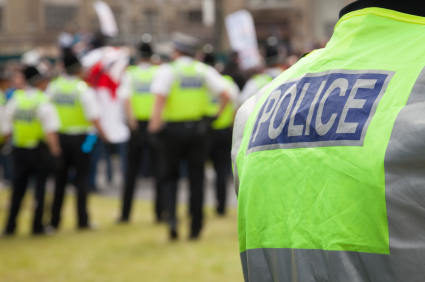Government must ‘wake up’ on impact of further police cuts
THE public and the government have got to “wake up” about the effect of police cuts, the Chairman of South Yorkshire Police Federation has said.
Neil Bowles was speaking after new government figures showed that his force has lost 135 officers in the past year, and a total of 466 since 2009.
South Yorkshire now has 2,587 officers, down from a high of 3,053 in 2009.
But Mr Bowles warned that services will be put at risk if the force has to continue policing with fewer officers.
He said: “It’s a continuation of the cuts – we’ve got to lose staff to cope with the cuts and obviously the service will be cut as well.
“The ordinary person in the street will notice the fact that people will not answer their phone calls as quickly, attend their incidents quickly, we’ll not attend some incidents.
“Other agencies will have to look after their own responsibilities, such as hospital welfare checks and things like that and you’ll just see less cops on the street.
“The government has decided to protect defence, we noticed in the latest budget. But the other half of protecting the public is the police service, and the government needs to wake up before it loses it.”
The police workforce statistics, published on 16 July, showed that the number of police officers is also falling throughout England and Wales. In 2010, there were 143,734 police officers but there are now 126,818 – that’s 16,916 fewer.
The figures showed that while the number of chief officers had fallen by three, the number of Superintendents and Chief Superintendents has gone up by 36 over the past year.
There are staggeringly 620 fewer police sergeants in England and Wales than this time last year, 153 fewer PCs, 230 fewer inspectors and 121 fewer chief inspectors.
Steve White, Chairman of the Police Federation of England and Wales, said: “There needs to be a widespread and full debate about the shrinking numbers of officers and staff available to forces and how the service can best use the dwindling resources available.
“We are particularly concerned about the slow death of neighbourhood policing that we are seeing in forces across England and Wales.
“With dwindling resources, the link between officers and the public they serve is in danger of being broken. At a time of a heightened terrorism threat and with pressures increasing on officers from across the spectrum of crime, it is incumbent on the government to ensure that forces have adequate resources to meet these threats.”
There has been a big annual drop in number of Special Constables in England and Wales, from 17,764 last year to 16,101 this year – 1,663 fewer.
Police staff numbers have dropped from more than 80,631 in 2009 to 63,719 in 2015. That’s 16,912 fewer.
The total police workforce has fallen from 244,497 in 2010 to 207,140 in 2015.
In total, there are 37,357 fewer people working in policing than there were five years ago.
There are currently 91,081 male police officers and 35,738 female police officers.
You can see the full 2015 police workforce statistics here: https://www.gov.uk/government/publications/police-workforce-england-and-wales-31-march-2015/police-workforce-england-and-wales-31-march-2015

